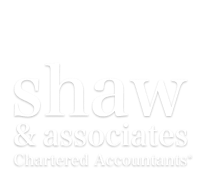Sole Proprietorships, Partnerships and Corporations: Which One Suits You?
May 2nd, 2018
Posted in: Business Advisory

There is a lot of hard work involved in starting a small business, with tons of difficult decisions. And right at the top of the list is deciding what kind of management structure you’ll have.
The simplest, easiest, least expensive form your company can take is a sole proprietorship. One of the biggest downfalls of sole proprietorships is that the business owner takes on all the risks and debts of the company personally. This might not be a concern for you at all; your business may have very limited risk and debt, which could be taken care of with a comprehensive insurance policy. Additionally, as a sole proprietor you will be paying tax at the personal rate that your total income falls into. This could be anywhere from 25% to 40%!
The second least complicated form for a company to take is a partnership. This is virtually the same as a sole proprietorship, except there are two or more people who have ownership of the company. Anyone who feels that a partnership is the company structure that works best for them needs to make sure that their accountants and lawyers are consulted every step of the way.
The reason for this is that each partner of the business is legally responsible for decisions made by every other partner; this situation exposes each partner to the outcome of decisions that they may not have had any input in making. Starting the partnership with feedback from your accountants and lawyers is the safest way to proceed with a partnership; keeping them in the loop as your business progresses is also essential to make sure your partnership remains beneficial to all concerned.
The tax implications of a partnership are similar to that of a sole proprietor. Each partner is taxed at the personal tax rates on their portion of the income.
The most complicated form for a company to take is a corporation. Corporations are more difficult to set up and continue to run, as well as more expensive, but they have the big advantage of separating the shareholders/owners of the company from the risks and debts of the company.
As well, a corporation is likely to provide you with more options for tax planning—and a lower tax rate. An active business corporation has a small business tax rate of 14% on all income under $500,000. A corporation also gives the shareholders the ability to take dividends as personal income, rather than wages, which again has tax-saving potential.
If you are in a position where a sole proprietorship is not right for your business, you would probably do well to consider incorporating your company rather than forming a partnership—your peace of mind is worth a lot. Determining the best time to incorporate is another common concern. There is no perfect time, but if you are a sole proprietor and your income from business is getting so high that you are paying over 30% in personal taxes, incorporation would be the best idea to bring this tax rate down and save substantially.
Contact Shaw & Associates Chartered Accountants to help you out with your financial needs and tax planning and to give you the advice and services that will take you from where you are to where you want to be with your business. One complimentary meeting with us will put you and your business on a more profitable and positive path.

